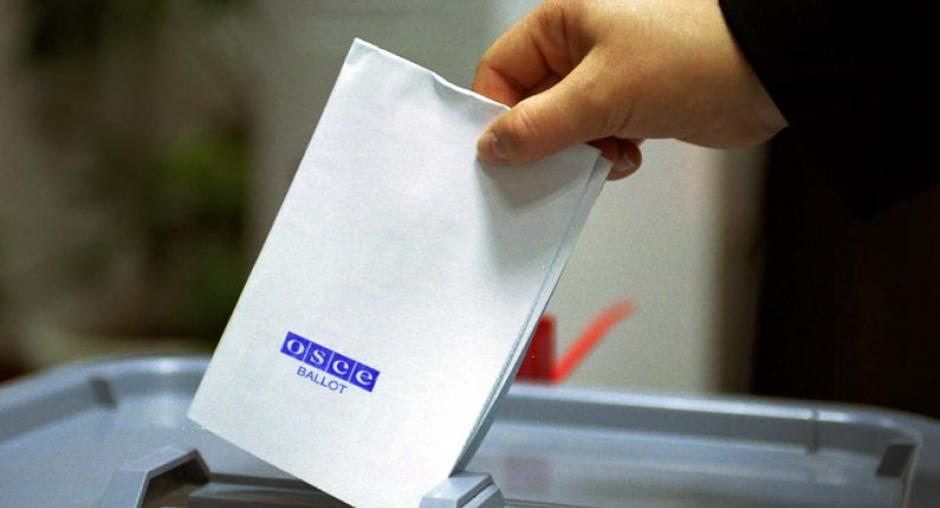Newsroom
Czech parliamentary elections in line with international standards
PRAGUE 16 June 2002

The OSCE monitors the conduct of elections in its participating States. (Lubomir Kotek/OSCE) Photo details
PRAGUE, 16 June 2002 - The 14-15 June elections for the Chamber of Deputies of the Czech Republic met international standards and commitments for democratic elections, concluded the Election Observation Mission of the OSCE Office for Democratic Institutions and Human Rights (ODIHR) in a statement issued today.
The ODIHR observers noted that the elections were carried out in a generally calm and low-key political atmosphere. The new election administration system instituted after the last parliamentary elections worked well because of the high level of public confidence in the integrity and impartiality of the election administration.
The authorities in some instances went beyond legal requirements to enhance transparency, including setting up an impressive public website with detailed polling station results and tabulations. However, some changes in the election system do not reflect best practices in terms of promoting transparency. For example, the highest electoral body, the State Election Commission, which previously included political party representatives, is now made up entirely of government officials and holds all its meetings behind closed doors, denying public access to its deliberations.
The election administration performed well and the election process ran smoothly. Technical preparations for the election were carried out efficiently, including training for election officials. In another positive step, voting by Czech citizens outside the country was permitted for the first time in this election; unfortunately, very few citizens abroad availed themselves of the opportunity to vote. There were relatively few election-related complaints and appeals. However, the ODIHR is concerned that the law and its application may not result in timely and effective remedies for complainants.
The public electronic media provided free air time for all registered political parties, but public television was not particularly imaginative in enabling the parties to get their messages across - the free air time was allocated in blocs in mid-afternoon when viewership is low. The private electronic and print media, taken as a whole, provided a range of predominantly neutral information and opinions to the public, although many of the smaller parties received little or no coverage in many media outlets.
The ODIHR observers noted that the elections were carried out in a generally calm and low-key political atmosphere. The new election administration system instituted after the last parliamentary elections worked well because of the high level of public confidence in the integrity and impartiality of the election administration.
The authorities in some instances went beyond legal requirements to enhance transparency, including setting up an impressive public website with detailed polling station results and tabulations. However, some changes in the election system do not reflect best practices in terms of promoting transparency. For example, the highest electoral body, the State Election Commission, which previously included political party representatives, is now made up entirely of government officials and holds all its meetings behind closed doors, denying public access to its deliberations.
The election administration performed well and the election process ran smoothly. Technical preparations for the election were carried out efficiently, including training for election officials. In another positive step, voting by Czech citizens outside the country was permitted for the first time in this election; unfortunately, very few citizens abroad availed themselves of the opportunity to vote. There were relatively few election-related complaints and appeals. However, the ODIHR is concerned that the law and its application may not result in timely and effective remedies for complainants.
The public electronic media provided free air time for all registered political parties, but public television was not particularly imaginative in enabling the parties to get their messages across - the free air time was allocated in blocs in mid-afternoon when viewership is low. The private electronic and print media, taken as a whole, provided a range of predominantly neutral information and opinions to the public, although many of the smaller parties received little or no coverage in many media outlets.
